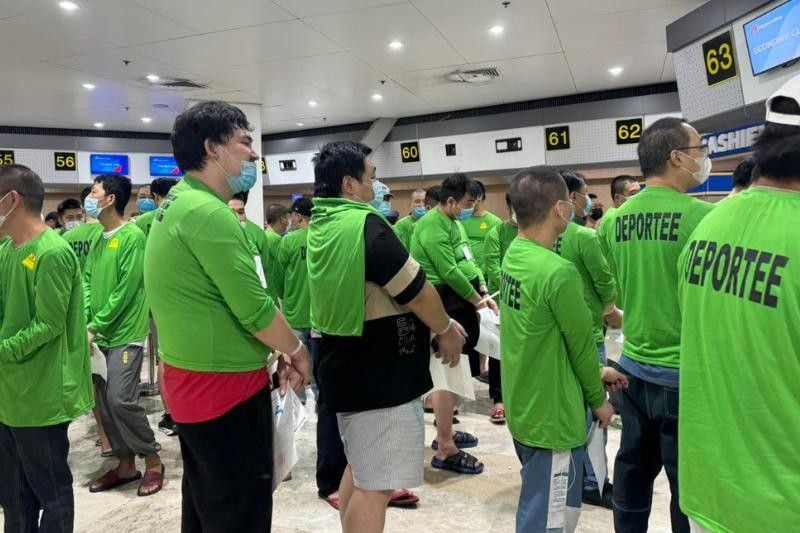DoF willing to forego taxes from offshore gaming firms

THE DEPARTMENT of Finance (DoF) on Tuesday said it could forego about P13 billion in tax and gaming revenues from Philippine Offshore Gaming Operations (POGO) if these are banned, adding that more investments could come in if crimes linked to these outfits are cut.
“Although we are forgoing some tax revenues if ever there will be a ban of POGOs, these can be compensated if there will be more investments coming in because of the ban,” Finance Assistant Secretary Karlo Adriano S. Fermin told a Senate ways and means hearing.
The reputational risk from POGOs — mostly Chinese gambling firms that operate online casinos targeting Chinese clients — could cost the government P55.36 billion in forgone investments due to crimes linked to them, and P29.01 billion in forgone revenues in tourism, he added.
The Senate body is discussing a bill that seeks to ban all forms of online gambling.
POGOs generate about P10.32 billion yearly taxes for the Bureau of Internal Revenue and P3.15 billion in gross gaming revenues for the Philippine Amusement and Gaming Corp. (Pagcor), Mr. Fermin said.
Pagcor earlier said the government could lose P20 billion in yearly revenues if these gambling firms are banned.
Senator Sherwin T. Gatchalian told BusinessWorld on the sidelines of the hearing that the government could replace revenues from POGOs by developing the business process outsourcing (BPO) industry.
“The BPO sector is a growing industry,” he said. “It employs about 1.7 million people, so we can easily replace these revenues through this sector.”
Last week, Finance Secretary Ralph G. Recto said a letter had been sent to President Ferdinand R. Marcos, Jr. recommending the total ban of offshore gaming operators.
Pagcor Chairman and Chief Executive Officer Alejandro H. Tengco earlier told senators that his agency has banned POGO hubs and was working on guidelines for stricter regulation.
National Economic Development Authority Secretary Arsenio M. Balisacan last week said the Cabinet had yet to discuss the ban.
“In general, the Department of Finance supports the prohibition of POGO operations due to the social costs and reputational risks they entail,” Mr. Fermin said.
Also on Tuesday, a political coalition urged the Marcos government to cancel the license of all POGOs that cater to the Chinese market, citing an internet gaming regulation banning websites from being accessed in the Philippines and countries where gambling is prohibited.
Pagcor’s Internet Gaming Regulations dated July 12, 2023 bar POGOs from allowing their gaming websites to be accessed within the Philippines or in countries where online gaming is illegal, 1Sambayan said in an open letter to Mr. Marcos.
The Chinese Embassy in Manila has already stressed that under mainland China’s law, “any form of gambling, including online gambling and overseas gambling by Chinese citizens, is illegal,” the group said.
1Sambayan said Mr. Marcos should immediately cancel licenses of POGOs that cater to the mainland Chinese market.
It noted that under Pagcor rules, ‘In case the license has been granted and the misrepresentation or false information is later discovered, the license shall immediately be canceled and a 10-year ban from holding a license under these regulations shall be imposed.”
1Sambayan noted that recent developments show that “Chinese POGOs are mostly operated by criminal syndicates.”
“There is no legal, moral, economic or social justification to allow such POGOs to operate in the Philippines,” it said in a letter signed by advocates and former government officials including former Supreme Court justice Antonio T. Carpio, former Audit Commissioner Heidi L. Mendoza and ex-Bangko Sentral ng Pilipinas Deputy Governor Diwa C. Guinigundo. — John Victor D. Ordoñez and Kyle Aristophere T. Atienza



